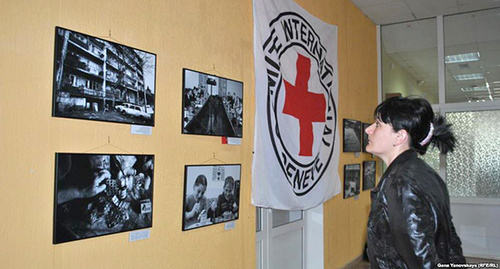
01 September 2015, 07:03
Book of stories about missing residents presented in South Ossetia
On August 30, in Tskhinvali, the mission of the International Committee of the Red Cross (ICRC) held a memorial party dedicated to missing residents.
In the course of the party, a show of photos was opened, which presents 45 photos of people and houses in South Ossetia, where their owners have not returned yet.
Besides, to this day, the ICRC published a book, both in the Russian and Ossetian languages, with tales and stories, narrated by family members of missing persons. The book is accompanied by an audio CD with the same stories. In total, there are 62 stories about those, whose fate is still unknown.
Jan Mishkots, the head of the ICRC in Tskhinvali, assured at the party that the Red Cross will continue supporting the families, whose relatives are missing.
According to the ICRC, currently, over 150 residents in South Ossetia are considered missing; most of them disappeared in the period from 1989 to 1992; the rest of them – after the events of August 2008, the "Caucasian Knot" correspondent reports.
Full text of the article is available on the Russian page of 24/7 Internet agency ‘Caucasian Knot’.
Author: Arsen Kozaev Source: CK correspondent




